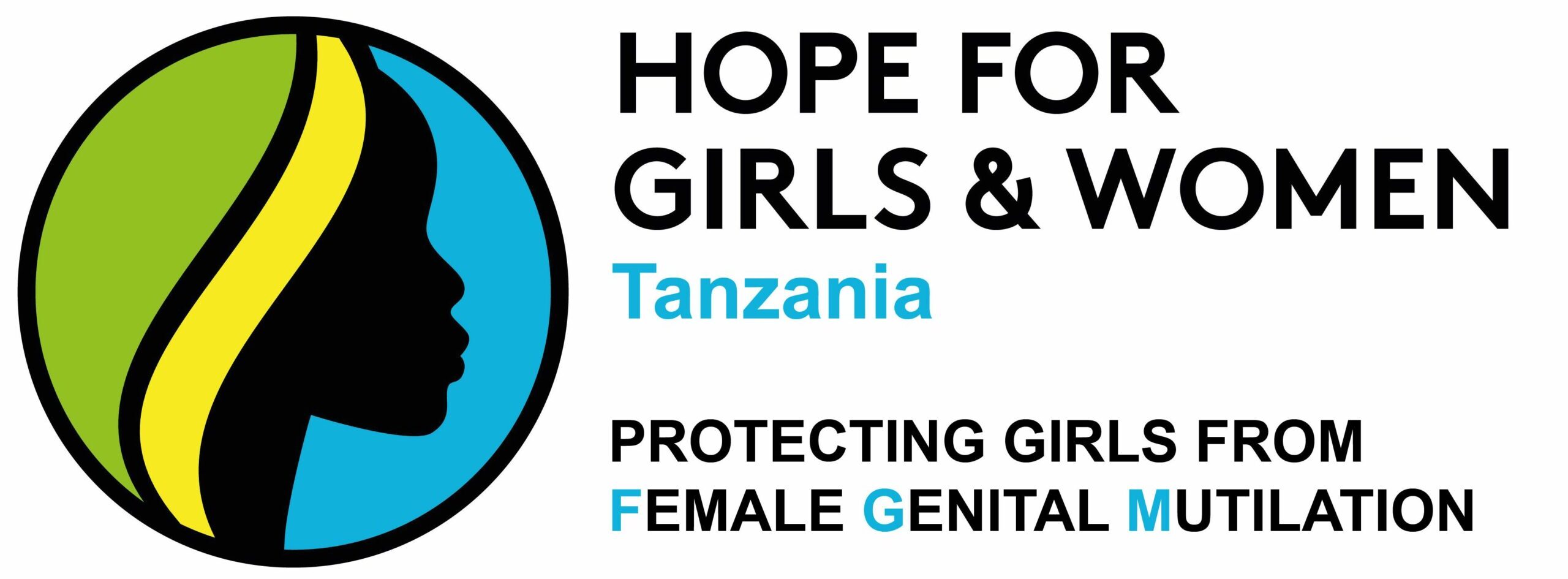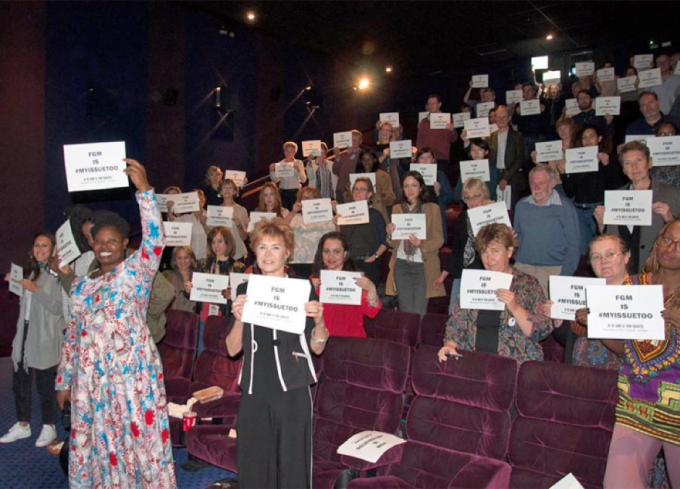Since September, Rhobi Samwelly has been on a global anti-FGM mission. Her journey commenced in New York, where she spoke passionately in front of a high-level UN Panel, recounting her harrowing FGM experience as a teenager. From then, she travelled to London to join director Giselle Portenier for the UK premiere of In The Name of Your Daughter. The documentary is centered around Rhobi’s active fight against FGM in rural Tanzania. The latest leg of her advocacy mission drew her to Ottawa.
On October 23rd, Rhobi, along with Giselle Portenier were welcomed by Senator Jim Munson on the floor of the Senate of Canada. Proclaiming Rhobi as a “human right hero” and a “shining light”, Senator Jim Munson praised the documentary for its sensitive portrayal. “I am still trying to catch my breath after watching – In The Name of Your Daughter” Mr Munson said. “This may be a difficult subject for some, but this an issue that must be addressed over and over again. FGM is happening in Tanzania, it is happening around the world and it is happening in Canada” he continued.

Senator Jim Munson continued by underscoring Rhobi’s outstanding work with Mugumu Safe House before asking Canadian leaders to consider tracking cases of FGM domestically (transcript found below).
Rhobi dedicated the rest of her visit to reaching as many people as possible with her anti-FGM message and promoting In the Name of Your Daughter. This entailed spreading the word by radio and addressing the International Parliamentarians Conference with Canadian MP Carolyn Bennett. While Rhobi’s advocacy has originated in Tanzania, her global journey has shown that FGM is a mission that resonates deeply with everyone, irrespective of race, country and religion.



The following is the official transcript of Senator Jim Munson’s accolade for Rhobi Samwelly on the floor of the Senate of Canada, 23rd October 2018:
The Hon. the Speaker: Honourable senators, I wish to draw your attention to the presence in the gallery of Rhobi Samwelly, Giselle Portenier and Liz Smith. They are the guests of the Honourable Senator Munson.
On behalf of all honourable senators, I welcome you to the Senate of Canada.
Hon. Senators: Hear, hear!
Hon. Jim Munson: Honourable senators, there is a human rights hero in our midst. Rhobi Samwelly from Tanzania is saving lives, girls’ lives. I am still trying to catch my breath after watching a compelling documentary on Sunday night here in Ottawa, a documentary called In The Name of Your Daughter, produced and directed by Canadian Giselle Portenier.
This may be a difficult subject for some, but this an issue that must be addressed over and over again. FGM, or female genital mutilation, is happening in Tanzania, it is happening around the world and it is happening in Canada.
Today’s story is about rural Tanzania where, despite the tragic circumstances, there is hope and courage.
Honourable senators, I am on my feet today to talk about a shining light. That shining light is Rhobi Samwelly.
Rhobi, through her advocacy and her Mugumu Safe House, is helping women and girls who have been victims or who are fleeing potential victimization.
Senators, my colleagues Senator Ataullahjan and Senator Jaffer have spoken passionately in this place about this illegal practice. We know what a horrific procedure this is: it puts lives and health of young girls at risk; girls have died.
In the documentary I saw on Sunday, In the Name of Your Daughter, there is the story of young Rosie Makore who, at 11 years old, has to decide to submit to cutting and child marriage or run away from everything and everyone she knows.
That is why the work of Rhobi’s safe house is so important. It gives girls a place of peace, a place of compassion and a place where they are accepted.
It is heartbreaking in this film to see young children run down a country road to a safe house. The child has found out that she will be next in a traditional cutting ceremony. At the safe house, these girls — and there are hundreds of them — gradually gain confidence and independence. The main goal is to stop FGM being forced upon girls and women.
Tomorrow is world UN Day, a day for Canada to reflect on its international roles, commitments and obligations. The United Kingdom has started to track cases of FGM, which is a step I think Canada should take to help women living with the effects, both physical and psychological.
These are vulnerable citizens, these young girls of the world. Let’s help the victims of FGM and help stop the practice from happening anywhere ever again.
I salute Rhobi Samwelly. She is here with us today. She’s on her way back to rural Tanzania to do her work. Cutting season is an open season now in that country and in other countries of the world.
As you head back to your country today, Madam, we in the Senate of Canada want you to know you are not alone in this battle for the rights of the child.
To Giselle Portenier, the Canadian director and producer of this incredible documentary, I want to thank you on behalf of the senators for shining your light.
This documentary, In The Name of Your Daughter, received rave reviews in London, England recently; it should be an Academy Award-winning documentary. This is about little girls, honourable senators; we must do more.
(1410)
In the name of all senators, thanks to both of you for bringing a shining light.
Hon. Senators: Hear, hear!
The transcript can be visited on the Senate of Canada website here: https://sencanada.ca/en/content/sen/chamber/421/debates/238db_2018-10-23-e#7





